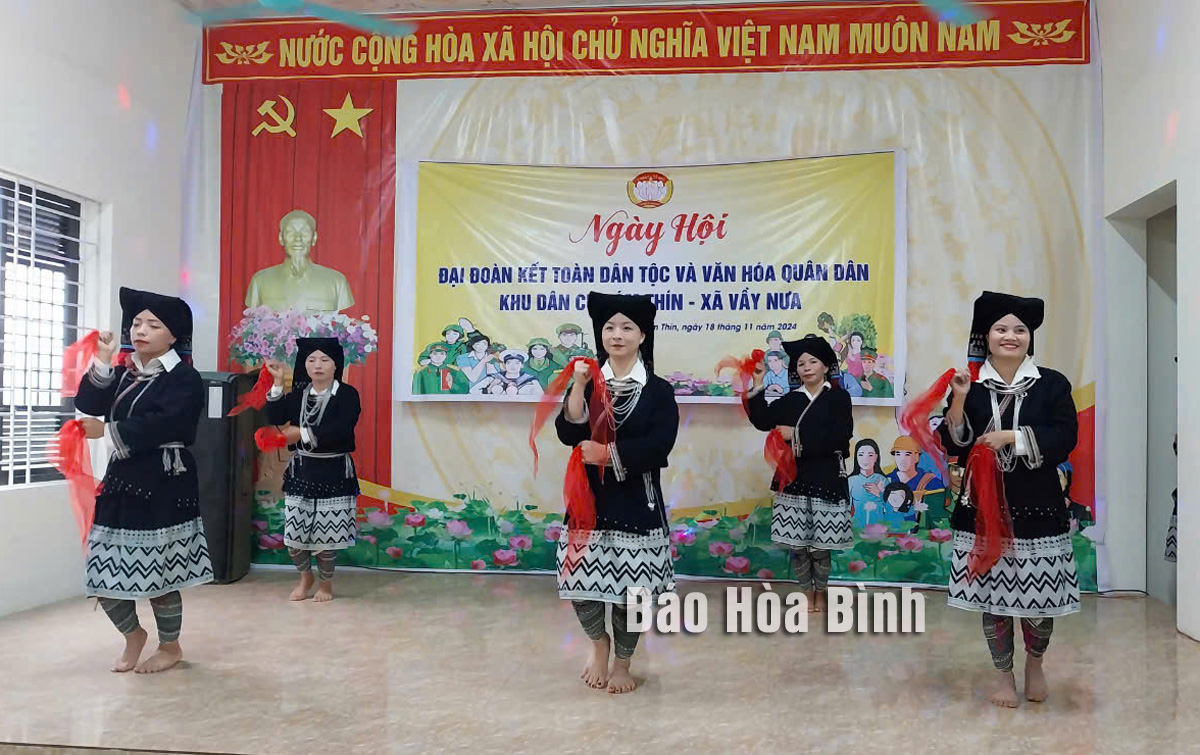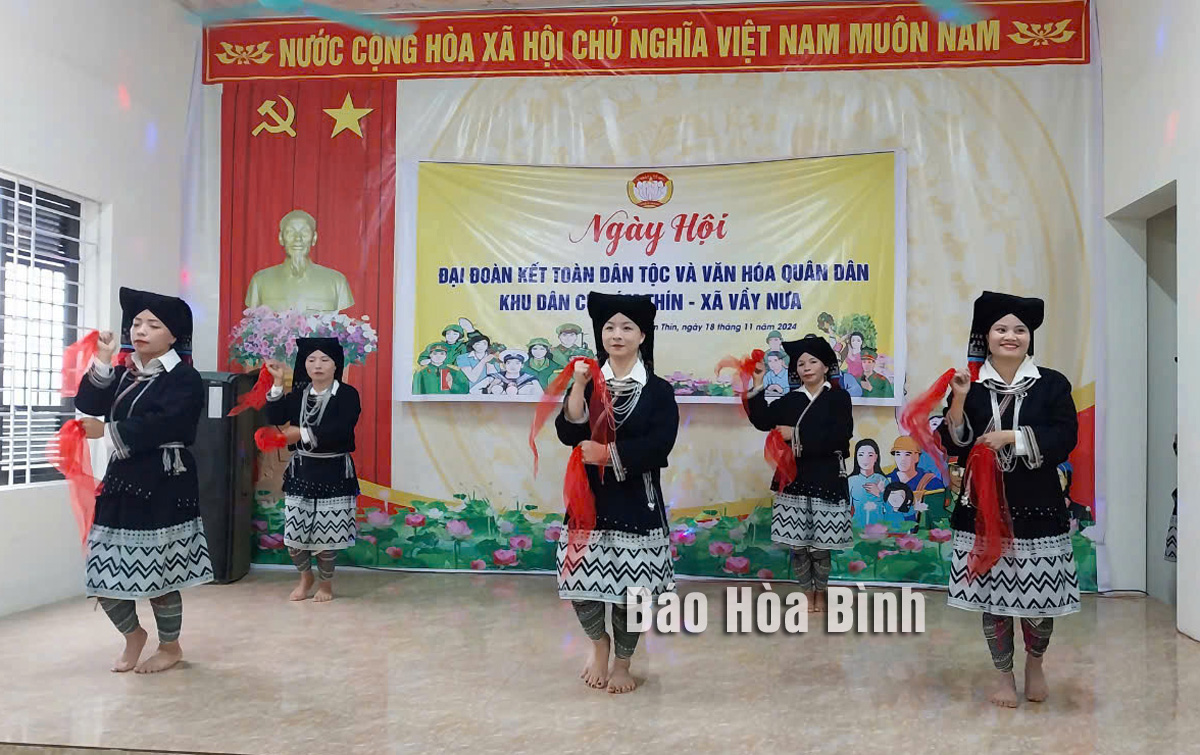
Great National Unity Day has been recently celebrated in Duong hamlet, Vay Nua commune, Da Bac district, in an atmosphere of warmth and community spirit. The event highlighted national identity and strengthened the bond of solidarity among residents.
A
performance of Tay ethnic people in Thin hamlet, Vay Nua commune, Da Bac
district at Great National Unity Day.
Located at the centre of Vay Nua commune, Duong hamlet is home to 81 households
with 325 residents. The Dao ethnic group makes up 98% of the population, while
the remainder consists of Muong and Tay people. This year, the hamlet
demonstrated strong solidarity by actively participating in movements and
campaigns, particularly the "All people stay united to build new-style rural
areas and civilised urban areas.” These efforts have bolstered community
cohesion and contributed significantly to the commune’s progress in new-style
rural development.
Throughout November, other hamlets in Vay Nua commune also held
celebrations to mark Great National Unity Day and the Military-Civilian
Cultural Day. According to Dinh Thanh Phu, Secretary of the Commune's Party
Committee, these events not only reflect community solidarity and sound
cultural values but also enrich the cultural life of the region. This unity
serves as a source of strength, enabling ethnic groups to live in harmony,
support one another, and overcome challenges in the journey toward building
new-style rural areas.
Vay Nua commune, situated along the Da River about 20km from the
district center, comprises eight hamlets predominantly inhabited by the Dao and
Muong ethnic groups. The commune faces significant challenges, including uneven
population distribution, underdeveloped infrastructure, and economic hardship.
Currently, 28.57% of households are classified as poor, while 26.2% are
near-poor.
Despite these difficulties, the solidarity among the Party organisation, local
authorities, and residents has been key to ensuring political stability, social
and security order, and economic progress. Residents trust the leadership of
the Party and actively participate in campaigns to build new-style rural areas
and foster a vibrant cultural life.
Da Bac district, where ethnic minorities make up 89.72% of the population, is
home to five ethnic groups living harmoniously while preserving their unique
cultural traditions. This diversity creates a rich and dynamic cultural and
spiritual life in the region.
As of November 20, all residential areas in Da Bac district had successfully
organised Great National Unity Day. Dinh Thi Kieu, Chairwoman of the Vietnam
Fatherland Front (VFF)’s chapter in Da Bac district, noted that these
celebrations were held safely, economically, and effectively. They honoured
traditional cultural values, recognised outstanding individuals and exemplary
families, and fostered unity between military personnel, officials, and
residents, thereby strengthening spiritual foundation in the new cultural
life.
With an increasingly vibrant and widespread emulation movement aimed at building cultured residential areas and cultured families, Yen Thuy District has been making steady progress toward improving both the material and spiritual well-being of its people, while fostering a civilized, prosperous, beautiful, and progressive community.
Once lacking recreational spaces and community facilities, Residential Group 2 in Quynh Lam Ward (Hoa Binh City) has recently received attention for the construction of a new, spacious, and fully equipped cultural house. The project followed the model of state support combined with public contributions in both labor and funding.
The "All people unite to build cultural life" movement, which has been effectively integrated with Kim Boi district’s socio-economic development goals, is fostering a lively spirit of emulation across local residential areas, hamlets, villages, public agencies, and enterprises. In addition, through the initiative, traditional cultural values are being preserved and promoted, while community solidarity and mutual support in poverty reduction and economic development are being strengthened.
A working delegation of the Hoa Binh provincial People’s Committee led by its Permanent Vice Chairman Nguyen Van Toan on June 11 inspected the progress of a project to build the Mo Muong Cultural Heritage Conservation Space linked to tourism services in Hop Phong commune, Cao Phong district.
Born and growing in the heroic land of Muong Dong, Dinh Thi Kieu Dung, a resident in Bo town of Kim Boi district, in her childhood was nurtured by the sweet lullabies of her grandmother and mother. These melodies deeply imprinted on her soul, becoming an inseparable part of her love for her ethnic group's culture. For over 20 years, this love for her hometown has driven Dung to research, collect, and pass down the cultural values of the Muong people to future generations.
In the final days of May, the Ethnic Art Troupe of Hoa Binh Province organized performances to serve the people in remote, mountainous, and particularly disadvantaged areas within the province. These were not just ordinary artistic shows, but they were the meaningful journeys aimed at spreading cultural values, enhancing the spiritual life of the people and contributing to the preservation of ethnic minority cultural identities.



